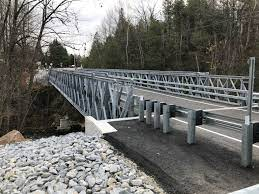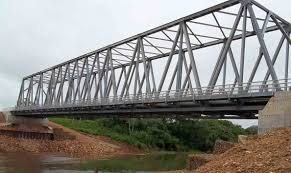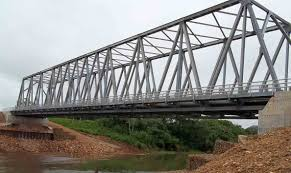Prefabricated Steel Bridges
Firstly, prefabricated steel bridges provide a high level of quality control.
Secondly, prefabricated steel bridges allow for improved control of project timelines and faster construction progress.
Thirdly, prefabricated steel bridges minimize disruption to traffic.
Additionally, prefabricated steel bridges offer greater design flexibility and innovation.
Prefabricated Steel Bridges:
Prefabricated steel bridges offer numerous advantages in the field of bridge construction.

Firstly, prefabricated steel bridges provide a high level of quality control. Since the components are manufactured in controlled conditions, such as factories or precast yards, the quality of materials, manufacturing processes, and construction quality can be better controlled. This helps to minimize human errors during on-site construction and enhances the overall quality and reliability of the bridge.

Secondly, prefabricated steel bridges allow for improved control of project timelines and faster construction progress. Compared to traditional on-site construction methods, prefabricated steel bridges can significantly reduce construction time. While the components are being manufactured in factories or precast yards, on-site foundations can be constructed in parallel, thereby reducing the overall project duration.

Thirdly, prefabricated steel bridges minimize disruption to traffic. Traditional bridge construction often requires road closures or traffic restrictions, causing congestion and inconvenience. However, with prefabricated steel bridges, most of the work is done off-site. The components are then assembled on-site in a short timeframe, minimizing traffic disruptions and improving construction efficiency. This helps to reduce traffic congestion and enhance public safety.
Additionally, prefabricated steel bridges offer greater design flexibility and innovation. The manufacturing process of prefabricated steel bridges allows for customization, enabling the bridges to meet specific requirements and accommodate various bridge forms. Advanced technologies and materials can be used in the fabrication of prefabricated steel bridges, allowing for innovative designs and improved performance.
In summary, prefabricated steel bridges offer advantages such as quality control, project timeline control, minimal traffic disruption, and design flexibility in the field of bridge construction. These advantages contribute to improved efficiency and quality in bridge construction projects.
Related News
Submitted successfully
We will contact you as soon as possible


















